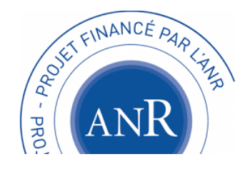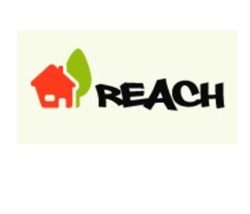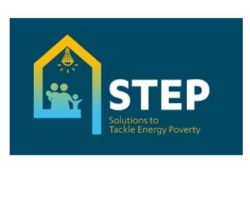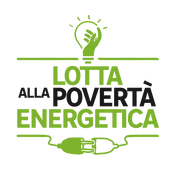What is energy poverty
The phenomenon of energy poverty can be defined as:
- difficulty of a household in purchasing a minimum basket of energy goods and services;
- resource distraction (in terms of expenditure or income) higher than a "socially acceptable value" for the purchase of the energy services it needs;
- in particular, for developing countries, impossibility of connection to the electricity grid and / or unavailability of modern forms of energy for heating and cooking food.

Analyzes carried out in Italy, for the three-year period 2014-16, highlight the phenomenon as the main potentially aggravating factors:
- the condition of absolute poverty;
- the condition that the family resides in the South (the phenomenon has increased over the years for this area) or in a small urban center;
- the low level of education of the contact person (the one who answers the questionnaire of the Istat expenditure survey), his unemployment status or his young age.
In order to counter this phenomenon, in the 2019 the OIPE is born – Italian Observatory on Energy Poverty – at the "Giorgio Levi Cases" Energy Economics and Technical Studies Center, chaired by Prof. Paola Valbonesi.
The Observatory is responsible for carrying out investigations and analyzes of a technical nature, social and economic, disclose the results, promote good practices on the national territory to detect and counter the effects of the phenomenon of energy poverty.
The network is made up of more than 50 members belonging to Italian and foreign universities, public and private entities and institutes.
For more information go to the site
Energy Poverty Observatory in Calabria
L’Energy Poverty Observatory in Calabria is coordinated by prof Marilena De Simone, researcher and lecturer in the Environmental Technical Physics sector at the Department of Environmental Engineering (DIAm) of the University of Calabria (Unical).
 Marilena De Simone, for several years, deals with energy issues related to the interaction between humans, building and environment.
Marilena De Simone, for several years, deals with energy issues related to the interaction between humans, building and environment.
He is currently a member:
– dell’OIPE (Italian Observatory on Energy Poverty) go to the site
– of the international network SECRET (Social Science, Engineering, Computing Research in Energy Topics) go to the site
She is coordinator for Unical:
– of the international network INPATH-TES go to the site
– dell’IEA EBC ANNEX 79 Occupant-Centric Building Design and Operation go to the site
Researchgate.net profile: Marilena De Simone
Creating a Regional observatory has the purpose of supporting study activities, disclosure, analysis and research conducted by the OIPE with particular reference to the Calabrian regional territory, and at noon in general, in order to collect and process data sets and information useful for activating, in the near future, efficient law enforcement policies and measures behavioural effective.
The percentage of Italian families in a state of energy poverty, indeed, is approximately 8% of the total (2,1 millions of families), with an incidence in the South equal to 14%, as indicated in the data of the latest OIPE report of 2019.
Despite the presence of supporting national economic instruments, eat bonus energy, personal income tax deductions and tax credits, only the 36% of potential beneficiaries would actually have requested such incentives.
The Observatory therefore intends to pursue the following objectives:
- support the development of a method for determining energy poverty indicators contextualized to the regional context;
- strengthen relations at national and European level on research and the fight against energy poverty;
- support the creation of collaboration networks between the research world, institutions, companies and voluntary associations;
- encourage the development of operational strategies for contrast;
- sensitize citizens to a more conscious use of energy resources in the home.
The Observatory, coordinated by Prof. Marilena De Simone, and promoted by Polo Green Home, intends to activate a series of activities with the collaboration of associations / entities /stakeholder present in the area and sensitive to the issue, can be divided into four phases set out below.
Phase 1 - Surveys and sampling
The identification of measures to combat energy poverty that are efficient and useful to the population, cannot ignore the in-depth knowledge of the territory and its actual problems. A tal fine, studies and surveys will be carried out aimed at achieving the following results:
- mapping of the territory for the identification of families in energy poverty;
- profiling and clustering of families in terms of behavioral variables, significant technical and socio-economic;
- identification of possible obstacles to access to support measures present on the national territory.
Phase 2 - Definition of targeted intervention strategies
The know-how acquired in the previous phase, will act as a 'start-point' for the subsequent definition of the implementation measures to combat energy poverty. From the analysis and processing of the acquired data, "problem cases" will be identified to be answered by identifying specific intervention actions, that allow not only a reduction in energy costs, but also an improvement in the quality of life, in terms of comfort and psycho-physical well-being, within the home environment.
Phase 3 - Field experimentation
The effectiveness of the set of intervention actions defined in the previous phase, will be tested on a representative sample of Calabrian families in conditions of energy poverty. The preliminary step will be the creation of a solidarity collaboration network that will allow the implementation of "domestic energy retrofit" measures at no cost for the beneficiary users..
Phase 4 - Monitoring, scalability and replicability of solutions
The sample families will be monitored for a predetermined period in order to be able to test in the field the effectiveness of the actions developed and to optimize the proposed solutions where necessary, in order to make them replicable also in other territorial contexts.
The goal of making the initiative scalable and feasible to an increasingly large sample of families, it will be pursued through the creation and consolidation of a solidarity network between entities, associations and companies sensitive to the issue.
The study and research activities aimed at achieving the widely described objectives were launched in January 2020 and relate:
- the collection and processing of data on the behavior of occupants and the physical characteristics of residential buildings. The data were collected through the formulation of a questionnaire distributed in digital format and administered via interview to users located in more than 50 municipalities of Calabria;
- data screening in order to assess its reliability and completeness, especially as regards the energy consumption of homes.
- creating a sample consisting of 233 utilities on which investigations have been initiated.
The aspects investigated for the creation of the user sample concern:
- characterization of energy costs and consumption;
- systems for the production and use of domestic hot water (ACS);
- heating and cooling systems;
- definition of employment in the various rooms of the house;
- definition of equipment usage profiles;
- definition of profiles for the use of ventilation and solar shading;
- definition of the DHW usage profiles;
- mode of cooling and heating of domestic environments;
- user profiling for demographic and socio-economic characteristics.
More specifically, data relating to the production and use of domestic hot water systems are being processed (ACS) through descriptive and inferential statistical analyzes and techniques of clustering. These analyzes concern the production systems and the energy source used according to the climatic zone, the type of dwelling, the populousness of the municipality of residence and the annual income of the families.
Examples of good practices in Europe
 Project title: REVE – Sustainably REducing energy poVErty
Project title: REVE – Sustainably REducing energy poVErty
Country of reference: France
Partnership: CERDI(Center for Studies and Research on International Development), IREGE(Institute for Research in Management and Economics), ArtDev(Resource actors and territories in development, cream-colored(Economics and Management Research Center).
Period of realization: 2015 – 2018
 Project title: REACH – Reduce Energy use And Change Habits
Project title: REACH – Reduce Energy use And Change Habits
Countries of reference: Bulgaria , Croatia, Macedonia, Slovenia
Partnership: Focus Association for Sustainable Development (Slovenia), Society for Sustainable Development Design (Croatia), Energy agency of Plovdiv (Bulgaria), MACEF- Macedonian Centre for Energy Efficiency (Macedonia).
Period of realization: 2014 – 2017
 Project title: STEP – Solutions to Tackle Energy Poverty
Project title: STEP – Solutions to Tackle Energy Poverty
Countries of reference: Bulgaria, Cipro, Czech Republic, Latvia, Lithuania, Poland, Portugal, Slovakia and the United Kingdom
Partnership: ADE(Great Britain), BEUC The European Consumer Organisation(Belgium), BNAAC(Bulgaria), Citizens Advice(Great Britain), CCA Cyprus(Cipro), DECO(Portugal), dTest(Czech Republic), Consumer Federation(Poland), LPIAA(Latvia), SOS(Slovakia)
Period of realization: 2019 – 2021






